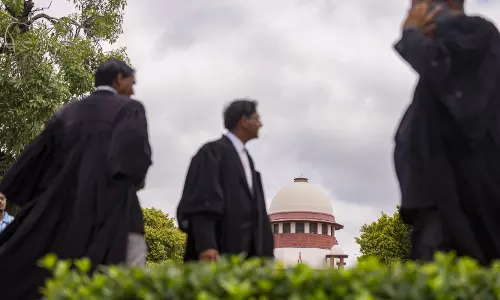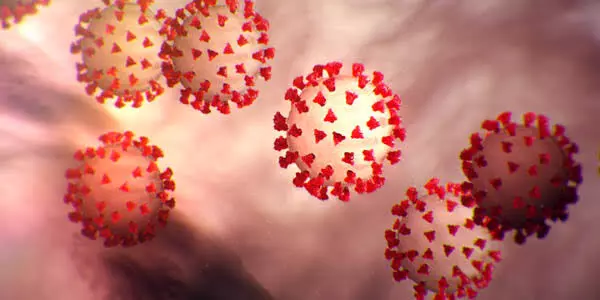
Virus loses power to infect in minutes through air: Study
text_fieldsA study published by the University of Bristol on Tuesday showed that the Coronavirus becomes 90% less infectious within 20 minutes of becoming airborne – with most of the loss occurring within the first five minutes.
According to the university's Aerosol Research Centre, which conducted the world's first simulations of how the virus survives in exhaled air, this inability to infect individuals within the period of time suggests that it not as potent or deadly as it is in its current form.
The study, which is yet to be peer-reviewed, is the first of its kind to simulate how exactly coronavirus travels in the air after it has been exhaled, The Guardian reported.
The findings from the study stresses on the importance of avoiding short-range Covid transmission, with physical distancing and mask-wearing likely to be the most effective means of preventing infection.
Stating that although people have been focused on poorly ventilated spaces and thinking about airborne transmission over metres or across a room, Prof. Jonathan Reid, director of the University of Bristol's Aerosol Research Centre and the study's lead author said that he thinks that still the greatest risk of exposure is when you're close to someone.
As per Reid, when someone moves further away, there's less infectious virus because the virus has lost infectivity [as a result of time] and the aerosol is diluted down.
Using this method, US researchers found that infectious virus could still be detected after three hours.
Researchers from the University of Bristol developed apparatus that allowed them to generate any number of tiny, virus-containing particles and gently levitate them between two electric rings for anywhere between five seconds to 20 minutes, while tightly controlling the temperature, humidity and UV light intensity of their surroundings.
Reid claimed that this is the first time anyone has been able to actually simulate what happens to the aerosol during the exhalation process.
According to the study, when the viral particles leave the lungs, they quickly lose water and the lower levels of carbon dioxide in the environment result in a rapid increase in pH. This affects the virus's ability to infect human cells, The Guardian reported.
Both of these factors disrupt the virus's ability to infect human cells, but the speed at which the particles dry out varies according to the relative humidity of the surrounding air.
This also contradicts the widely held belief that viral transmission is lower at high temperatures as it was discovered that the temperature of the air made no difference to viral infectivity.






















